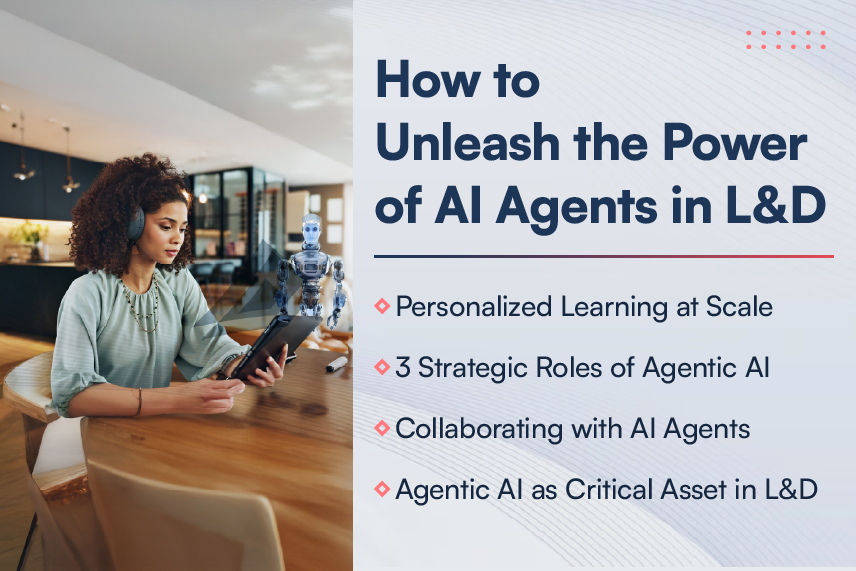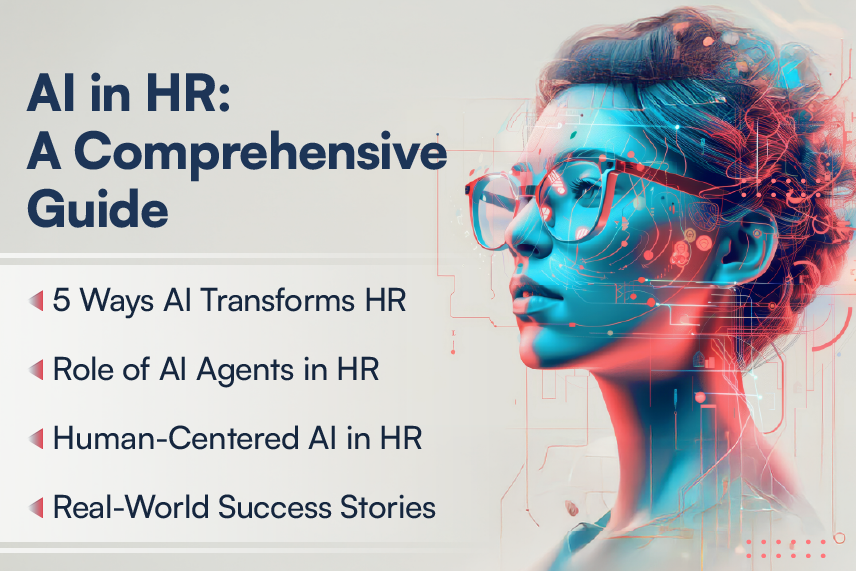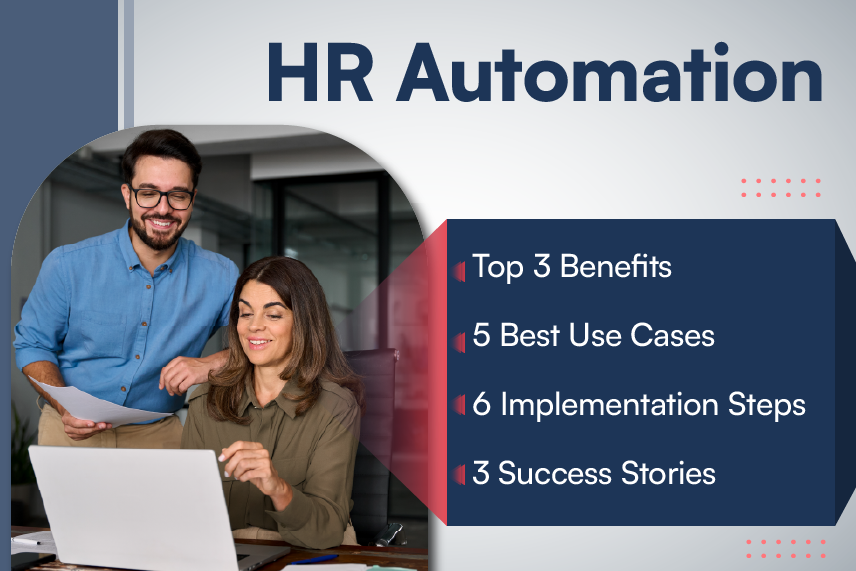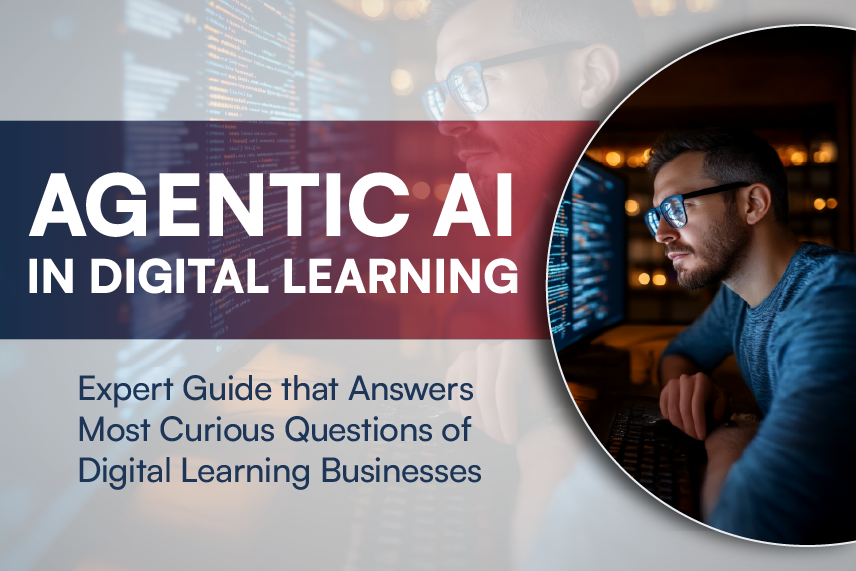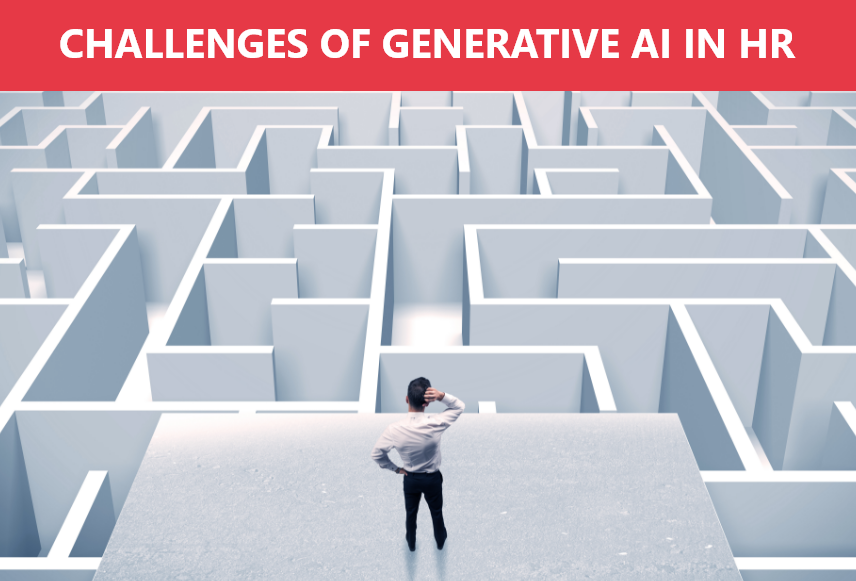
Unveiling the Landscape: Generative AI Challenges in HR
We all have explored how generative AI has revolutionized the world’s outlook. But are we aware of the other side of the coin—limitations, and generative AI challenges in HR?
The advent of generative AI in human resource management holds immense potential to transform companies’ approach to managing their workforce. The impact of generative AI goes beyond streamlining day-to-day processes. By empowering HR teams to analyze vast volumes of data, generative AI opens doors to valuable insights that can drive strategic decision-making.
Embracing generative AI in HR management allows businesses to unlock possibilities. By reimagining their HR practices and integrating intelligent systems, organizations can enhance their overall employee experience and performance. With the right strategies and implementation, generative AI can catalyze transformative change in HR.
However, it would be a significant drawback for your organization if you overlooked or underestimated the challenges of implementing generative AI in HR. The world is so fixated on the advantages and illumination of generative AI that hardly anyone cares about its limitations and drawbacks. It is an intelligent decision to harness the potential of generative AI but knowing its challenges and planning how to overcome them—is a wise decision—that will help you to grow your organization.
Importance of Addressing Challenges in Generative AI
You might wonder why we need to focus on the limitations of generative AI when we can just leverage the technology and stay ahead in the game. But sadly, it doesn’t work like that. Fully understanding technology is the foremost, unavoidable, and crucial task to harness its absolute potential. How would you trust a technology if you don’t actually know it?
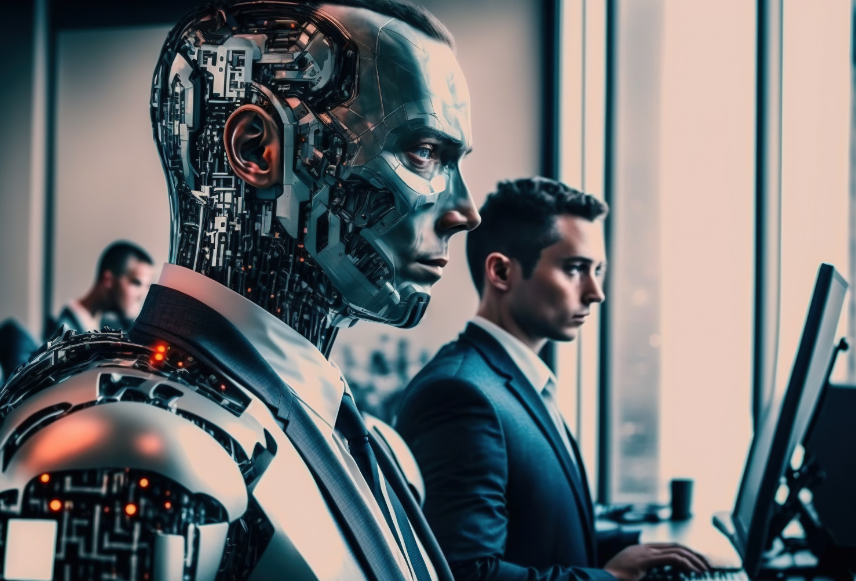
For instance, here’s eye-opening news for you– according to Firstpost, the user asked the Bing Chatbot about the show timings of Avatar: The Way of Water. However, the bot tells the user that the year is still 2022, and the movie has yet to be released. Further, the chatbot even accused the person of not being a good user.
Seems funny, right? Instead of such an amusing scenario, consider a few other scenarios, such as determining an employee’s utilization of sick days or identifying individuals covered by a benefits plan. Thus, it is imperative to know, learn, explore, and accept that regardless of the benefits of AI, you must address its limitations and challenges to use it reasonably.
Understanding the generative AI challenges in HR and any other industry is significant for several reasons. First and foremost, awareness of these challenges allows us to set realistic expectations for the capabilities and limitations of generative AI systems.
Generative AI has made remarkable strides in recent years but still faces significant hurdles. By acknowledging these challenges, we can avoid overhyping the technology and making unrealistic claims about its capabilities.
Moreover, knowledge of generative AI challenges is vital for addressing ethical concerns. The ability of generative AI models to create highly realistic fake content, such as deepfakes, poses risks to privacy, security, and misinformation. By understanding the challenges in detecting and combating these manipulations, we can develop appropriate safeguards and regulations to mitigate potential harm.
Finally, understanding generative AI challenges facilitates responsible and informed technology adoption. Different domains and industries have specific requirements and constraints. By knowing the challenges associated with generative AI, stakeholders can assess the feasibility, risks, and potential benefits of implementing generative AI solutions in their respective fields.
Top 5 Generative AI Challenges in HR

Remember, like any other nascent technology, implementing generative AI in HR comes with its limitations. Harvard Business School performed a survey and found that 88% of HR executives learned that their tools reject qualified candidates.
The job descriptions have too many qualifications, which created a long list of requirements for algorithms to check for in resumes. As a result, the algorithm rejected many qualified job seekers who may be missing just a few skills from the list. Another factor was a work gap in candidates’ resumes for over six months. These gaps may represent legitimate life events, like pregnancy or illness.
AI models have become accessible tools for various content creation tasks, encompassing text, image, video, audio, and synthetic data. However, it is crucial to recognize that alongside the potential advantages of this technology, there are certain challenges that business leaders need to consider. Here, we present five major challenges in generative AI for HR that warrant attention.
1. The Truthfulness of Generative AI
However, most of these models are found to be truthful less than 40% of the time. Although the precise percentage varies depending on the specific model, nearly all models, except one, were found to be truthful less than 60% of the time. One contributing factor to this phenomenon is the lack of real-time information available to generative AI models.
It is essential to bear in mind that the accuracy of an AI system is heavily reliant on the dataset it is trained on, and sometimes these datasets may not be updated to reflect the current year.
2. The Bias Problem
Have you ever wondered how your AI came to be? If a human trained it, biases are likely to be incorporated. Disturbingly, there have been instances where AI systems have reproduced the same errors made by humans, such as favoring male candidates in the hiring process. Even AI models trained on names associated with different races have demonstrated biases against specific names.
How Harbinger built an effective performance management system to enrich employee experience and maximize employee potential.
A study conducted by researchers from Cambridge University, titled “Does AI Debias Recruitment? Race, Gender, and AI’s ‘Eradication of Difference,'” sheds light on how AI may not necessarily reduce bias.
When an AI learns from a dataset, it inevitably assimilates biases that the researcher might be unaware of, unintentionally perpetuating them. While diversity recruiting strives to counter unconscious bias throughout the hiring process, delegating these responsibilities to a digital assistant does not guarantee the elimination of human flaws from the equation. Thus, this is one of the most crucial generative AI challenges in HR that needs to be overcome.
3. Data Privacy and Security Risks

AI development services rely heavily on vast data to train their algorithms. While this abundance of data presents lucrative business opportunities, it raises data storage and security concerns. As the volume of generated data increases and more users gain access, the risk of data leakage into the hands of malicious entities on the dark web escalates. The issues of data security and privacy have transcended local boundaries and have become a global phenomenon due to the generation of data from millions of users worldwide.
4. Transparency and Interpretability
Generative AI models, such as those used for resume screening, recruitment, or interview evaluations, often operate as black boxes, making understanding the reasoning behind their decisions challenging. HR departments must balance the accuracy and interpretability of these models. Transparent AI systems that can explain their outcomes will be crucial for HR professionals to gain trust and effectively address potential challenges.
5. Employee Acceptance and Trust
The introduction of generative AI systems in HR can create employee apprehension and concerns. The fear of job loss, algorithmic bias, or a lack of human touch can affect employee acceptance and trust. HR departments must proactively communicate these systems’ purpose, benefits, and limitations to employees, involve them in the development process, and provide transparency to alleviate concerns and foster acceptance and trust.
How to Harness the Maximum Potential of Generative AI for HR?
Here’s a blog for you! Let’s explore.
The Future of Generative AI in HR
Despite all the generative AI challenges in HR, we can undoubtedly say that the future of generative AI in HR holds tremendous potential to revolutionize the human resources landscape.
One of the key areas where generative AI will have a significant impact is talent acquisition. AI-powered systems can scan and analyze vast pools of candidate data, quickly identifying top talents that match specific job requirements. This will not only speed up the hiring process but also ensure a more diverse and inclusive workforce by mitigating unconscious biases.
Moreover, generative AI will enhance employee engagement and satisfaction through personalized experiences. Chatbots and virtual assistants powered by AI can provide instant support and answers to employees’ queries. AI algorithms can also predict employees’ learning and development needs, leading to tailored training programs.
Do you want to leverage the potential of Generative AI and LLM to accelerate HR processes, automate mundane tasks, and enhance workforce productivity?
In performance management, generative AI can analyze employee data to provide real-time feedback and recommendations for improving productivity. It can identify patterns and trends that may not be apparent to human supervisors, leading to more effective performance evaluations and goal setting.
Furthermore, generative AI can contribute to workforce planning and talent retention. By analyzing employee data, it can predict potential attrition and help HR professionals implement proactive strategies to retain valuable talent.
Closing Thoughts
The generative AI realm presents exciting possibilities and notable challenges for HR professionals. As organizations increasingly rely on AI systems to streamline their operations, it is crucial to be aware of the potential pitfalls of this technology.
By addressing these generative AI challenges in HR head-on, HR departments can harness the power of generative AI while mitigating risks. Striving for transparency and interpretability, maintaining a robust ethical framework, ensuring access to reliable and up-to-date data, verifying the truthfulness of AI outputs, and actively combating bias will be essential steps toward successfully integrating generative AI in HR processes.
Looking for trustworthy experts to help you overcome the generative AI challenges in HR so you can embark on the transformative journey? What are you waiting for? Contact our HRTech leaders now: contact@harbingergroup.com.
As AI evolves, HR professionals must stay informed, adapt, and find innovative ways to leverage generative AI capabilities. By doing so, HR leaders can foster fair and inclusive practices, enhance decision-making processes, and ultimately drive positive organizational change.
Looking for trustworthy experts to help you overcome the challenges in generative AI for HR so you can embark on the transformative journey? What are you waiting for? Contact our HRTech leaders now: contact@harbingergroup.com.



